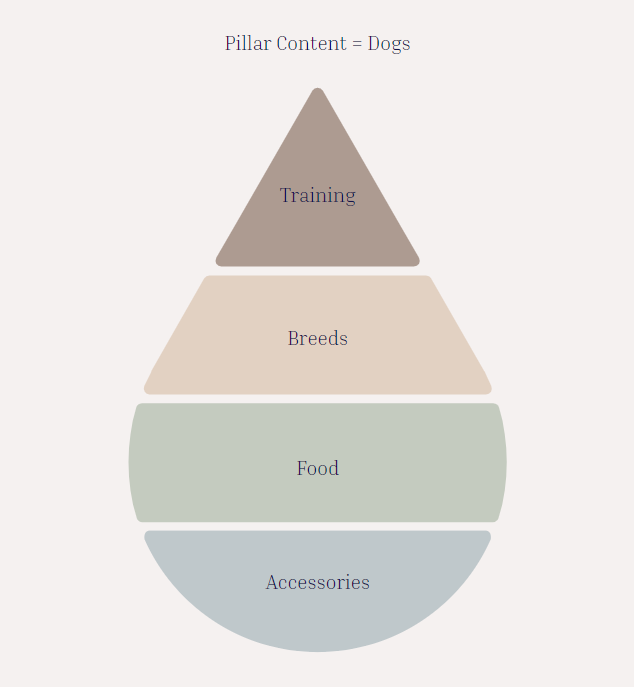Words have meaning. From the simplest first words we utter as children to the gradual expansion of our ability to read, learn, and comprehend everything from “see Spot run” to the seemingly endless word count of Tolstoy’s War and Peace, every word we hear, read or say, has meaning.
This concept is equally true in the B2B world. In the industrial arena, words are the foundation of every specification ever written. Those words can mean the difference between a successful RFQ response being accepted, rejected or even worse, thrown out of the process. Another example is words are, sometimes painstakingly, carefully chosen to create the building blocks of your corporate Mission Statement – something I think everyone reading this can relate to! And, finally, the RIGHT words are the basis for developing a powerful, effective, motivating marketing message.
In a previous post, we focused on the three RIGHTS we follow to develop and implement the simplest or most complex marketing and Public Relations program. As a reminder, those three RIGHTS are:
-
-
Put the RIGHT message
-
In front of the RIGHT people
-
The RIGHT number of times
-
So, let’s focus on the three words that are essential to communicate the RIGHT message…YOUR RIGHT message. We have learned through more than 30 years of first-hand experience and from insight we’ve gleaned from numerous third-party independent research studies, these three words are critical to include when developing a message for current and potential customers that will help motivate them to choose your products or services over those of a competitor’s.
Quality
For decades, B2B customers consistently rate product quality as the single most critical factor when choosing one manufacturer’s products or services over another’s. Whether it’s a complete machine or a replacement component, buyers want to know they are choosing the highest quality designs, built from the highest quality materials for their particular application. With that in mind, it’s critical to know what your customer’s definition and expectation of quality is.
Why is that important? Because quality is perceived differently depending on the industry and the application. One customer’s perception of quality may be very different from another’s. For example, fan motors used in some areas of the agriculture industry may be expected to last through the harvesting and grain storage season when they are only operating for a few months out of the year. After the season is over, if the motor is still capable of holding up through the next season, all the better. If not, they’ll replace it with another motor of the same level of quality and repeat the cycle. Naturally, the level of quality they expect also spells lower initial cost.
On the opposite end of the quality spectrum, General Motors manufacturing facilities expect a higher level of quality from every product they specify and/or purchase simply because a higher quality component can mean the difference between an assembly line running full speed 24/7 without issues versus one that has a lower quality component that requires constant monitoring and maintenance, increasing the odds it will fail and shut down the assembly line. Not good. In this case, choosing a lower quality component could cost GM millions of dollars in downtime. So, GM will invest in the highest quality equipment to increase uptime and output. Those two examples confirm why you must know what level of quality your customer expects.
Reliability
Always coming in at a strong number two position in the list of critical words your customer expects to see in your message is reliability. Unlike quality, reliability is not a perception – it’s a reality. Your products either perform as you promote them to perform or they don’t. One of the biggest mistakes a B2B company can make when crafting its message is misrepresenting the level of reliability of their products or services. And, much like the issue of quality, reliability depends on the customer’s expectations.
Like the examples cited above, reliability for the farmer can be different than for GM. An Ag application may require 100% reliability for six months compared to an assembly line at GM, where they expect 100% reliability for several years. This all goes back to the previous point…know your customers’ different industries and the unique requirements they each expect to fulfill your promise of providing the level of reliability they demand.
Availability
This is the easiest of the three words to define and also the easiest word to build into your message. The issue again depends on having a deep understanding of your customer’s needs. If your main customer bases are MRO, maintenance and plant operations professionals, chances are they want to know if the product is available at a moment’s notice. Typically those customers need your product when a failure occurs or is about to occur, and they need a replacement ASAP to stay up and running.
At the other end of the “availability spectrum” are customers like machine designers or consulting and specifying engineers. For the most part, these two industry categories need to know the product will be available when the time comes to buy it. In some cases that could be months down the road, or in the case of designing and building an extremely complex project like a nuclear submarine, product availability may be required two or more years from the day the specs are approved. So, even though the “availability” selling message can vary widely, including it in your message is extremely important to every one of your customers.
To wrap it up, the takeaways from this article boil down to the following:
-
-
Quality, reliability and availability are three critical motivational words to include in your marketing and promotional communications
-
Know your customer’s expectations of quality, reliability and availability
-
Make sure you reference those words in your message and back them up with case histories whenever possible
-
Be honest in your ability to deliver on each of these three expectations
-


.png)




